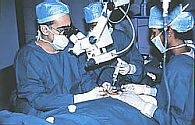
| The Male Factor in Infertility |
| ANDROLOGY : The Science of Dysfunctions of the Male Reproductive System |
 | |
| Sex is Not a Four-Letter Word | |
| Publisher: Rupa & Co., India | |
| A sex edutainment book by Dr. Sudhakar Krishnamurti... |
|
| Check with a good bookstore near you! | |
| Buy Online at | |
| • | Rediff Books  |
| • | Google.com |
| • | Amazon.com |
| • | NDTV Fabmall |
| • | Linux Bazar |
| A G A S S I 'Ageing, Gender, Andrology, & Sexual (Sciences), Society of India' |
|
 Impotence often comes without warning and can strike even the most virile stud like a bolt of lightning. How much of a risk do you face ? |
 Sex is man's second strongest instinct. An instinct that is second only to the survival instinct. This means that if a man's life is not immediately imperilled, the next thing he will automatically think of is sex. from WHAT EVERY ADULT NEEDS TO KNOW ABOUT IMPOTENCE |

The vacuum device is an external, non-invasive treatment option for impotence.
This device is available for purchase through this site.
Please Contact Us
More Information on non-invasive treatment options. More Details
 Before the advent of andrology, it was both thought and taught that impotence was psychological in origin. Epoch-making andrologic research in the past decade has shattered this myth and today it is known that in 80-90% of such cases, there is a physical (organic) cause rather than a purely psychological (functional) one. from THE SCIENCE OF ANDROLOGY |
|
o be infertile means to be unable to beget children. From the medical standpoint, a couple is considered to be infertile if there has been no pregnancy after one to one-and-half years of unprotected sexual intercourse. For the fertility process to proceed smoothly, both the man and the woman should be healthy and normal. Unfortunately, this aspect of conception is not known to most people. Traditionally (and very wrongly), it is the woman who is always blamed when a couple can't have a child. The investigation for infertility begins and ends with evaluation of the wife alone. Thus, a woman is often subjected to a D & C, laparoscopy etc. only to be told at the end of it all that everything is normal. It is not uncommon, in fact, for a man to divorce, not one but several wives under the mistaken (and chauvinistic) belief that she alone is responsible for the `barrenness'. Needless to say such men do not beget children even after several marriages !! One would ordinarily imagine that in country like India, which already has a population in excess of 980 million, child-bearing should be an effortless endeavour for human beings. This, however, is not true. Quite unrelated to the national population figure is the prevalence of infertility. Approximately 15-20 percent of all cohabiting couples are infertile. Of these, in up to 50 percent of cases it is the male factor or the husband who is responsible for the infertility. This means that nearly 7.5 to 10 percent of all men in the reproductive age group are infertile i.e. incapable of fathering children. This, by any yardstick, is a stupendous figure but one that very few know about. This article proposes to deal exclusively with male factor infertility. It is important to note that infertility and impotence are quite different entities. Failure to discern the difference between the two is a needless cause of embarrassment to most men who stay away from andrology clinics because of the stigma that goes with the latter term. Impotence means an inability to attain or sustain erections for satisfactory sexual intercourse. The term has no bearing whatsoever on the fertility status of the man. It is thus possible for a totally impotent man to be potentially fertile and it will be possible to produce a pregnancy in the wife of such a man by insemination of the husband's semen. Infertility, on the other hand, means an inability to produce children. This usually results from the husband's semen being infertile or sub-fertile. Most infertile men are perfectly normal in terms of potency and have very satisfactory sexual relations with their partners. A number of clinical conditions and disease entities can render a man infertile. The more important causes are summarised in the table.
Sometimes, in spite of the most meticulous search, no obvious cause can be found for the infertility. This group, known as the idiopathic infertility group, constitutes a large percentage.
The first test in the evaluation of the infertile male is the semen analysis. This test is inexpensive, easy to perform and gives valuable information. A perfectly normal semen analysis report generally precludes a significant male factor component and investigation and treatment should be more appropriately targeted at the wife. In fact, in many countries, the first test in the evaluation of an infertile couple is the semen analysis. This is generally performed before any tests are conducted on the wife. Often, in the case of male infertility, the semen analysis is abnormal. Either the count is low (oligospermia) or sperms are altogether absent in the ejaculate (azoospermia). Sometimes, sperm motility is seriously affected (asthenospermia) and sometimes the sperms are totally immobile or dead (necrospermia). There are many other anomalies that one may find on semen analysis. When one finds anomalies in the semen analysis, the next step is to try and find a cause for it. To do this, one must perform additional investigations. Some of the other tests that may need to be performed are a semen culture, anti-sperm antibody estimation, scrotal ultrasound, hormonal assays, karyotyping, vasography etc..
Treatment of male infertility is difficult and sometimes frustrating. Immediate results are hard to produce and persistence with therapy is required. The following modalities of treatment are generally employed.
 Obstructions in the sperm conduction pathway, varicoceles, undescended testes etc. can be treated by operation. Obstructions in the sperm conduction pathway, varicoceles, undescended testes etc. can be treated by operation.
Modern microsurgical techniques are of great help. Even patients who have undergone a vasectomy in the past can have their vasectomy reversed and the tubes recanalised successfully using microsurgery.
Microsurgery and assisted reproduction require considerable training, skill and infrastructure. Despite the availability of so many treatment modalities, some patients remain incurable and no treatment, cheap or expensive, can improve their fertility prospects. One then has no alternative but to recommend an AID (donor insemination) or adoption. Awareness of the magnitude and importance of the male factor in infertility is relatively recent. Tremendous advances have been made in andrological research over the past few years. If not today, one can envisage in the conceivable future, a situation where all males (and females) with infertility can be completely cured.
|
||||||||||||||||||||||||||||||||||||||||
Home | News | Main Articles | Special Features | ||||||||||||||||||||||||||||||||||||||||



 It is important to note that Infertility and Impotence are quite different entities. Failure to distinguish between the two is a needless cause of embarrassment to many men who stay away from andrology clinics because of the stigma that goes with the latter term.
It is important to note that Infertility and Impotence are quite different entities. Failure to distinguish between the two is a needless cause of embarrassment to many men who stay away from andrology clinics because of the stigma that goes with the latter term.












